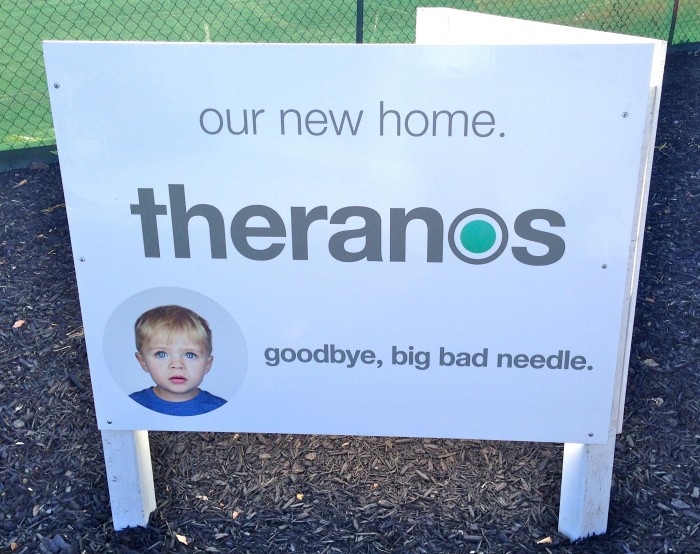Theranos Is Closing Its Labs and Hemorrhaging Jobs
The beleaguered blood-testing company Theranos has announced that it will close its testing labs and cut 340 staff from its books.
In an open letter to its stakeholders, the company’s CEO, Elizabeth Holmes, explained that Theranos had spent months “assessing our strengths and addressing … weaknesses.” Its weaknesses, if you didn’t already know, are all the clinical labs and Wellness Centers that it operates, which are now going to close.
Not that Holmes had a great deal of choice. Over the summer, U.S. regulators banned her from operating clinical labs. That decision followed a catastrophic series of problems at the company, which were first brought to light by a Wall Street Journal investigation that alleged its technology didn’t work. Shutting down the facilities, then, was the only way she could realistically continue operating the company.

Theranos was at one point a darling of Silicon Valley, valued at a dizzying $9 billion. And if its claims had come to fruition, that would have been justified. The company said that its technology, known as Edison, was able to perform an array of blood tests with just a finger-prick of blood.
But those claims didn’t stand up. Its results turned out to deviate from standard blood tests, and investigations showed that the labs were poorly run—the company didn’t even store blood samples at the correct temperature.
Holmes says Theranos will now turn its attention to its so-called MiniLab—a small, Internet-connected device capable of performing an array of blood tests. “Our ultimate goal is to commercialize miniaturized, automated laboratories capable of small-volume sample testing, with an emphasis on vulnerable patient populations, including oncology, pediatrics, and intensive care,” she writes. The device is thought to use a similar approach to the Edison technology that predated it—though, crucially, it won’t require running a lab.
But even if MiniLab is a success, Theranos has a fight on its hands. At this stage, its reputation is in tatters, and Forbes values the company at zero. Its fall from grace could yet cost it more than just its labs.
(Read more: Theranos, “Theranos Promised a Revolution, but Delivered Dangerous Errors,” “Theranos Unveils 'MiniLab' Invention to a Skeptical Audience”)
Keep Reading
Most Popular
Large language models can do jaw-dropping things. But nobody knows exactly why.
And that's a problem. Figuring it out is one of the biggest scientific puzzles of our time and a crucial step towards controlling more powerful future models.
How scientists traced a mysterious covid case back to six toilets
When wastewater surveillance turns into a hunt for a single infected individual, the ethics get tricky.
The problem with plug-in hybrids? Their drivers.
Plug-in hybrids are often sold as a transition to EVs, but new data from Europe shows we’re still underestimating the emissions they produce.
Google DeepMind’s new generative model makes Super Mario–like games from scratch
Genie learns how to control games by watching hours and hours of video. It could help train next-gen robots too.
Stay connected
Get the latest updates from
MIT Technology Review
Discover special offers, top stories, upcoming events, and more.